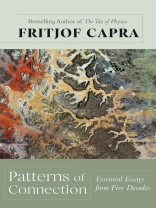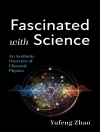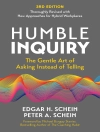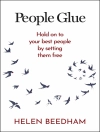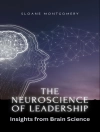Winner of the Silver Medal for Environment/Ecology in the 2022 Independent Publisher (IPPY) Book Awards
Fritjof Capra, scientist, educator, activist, and accomplished author, presents the evolution of his thought over five decades in Patterns of Connection. First introduced in the late 1950s to the work of Werner Heisenberg, a founder of quantum mechanics, Capra quickly intuited the connections between the discoveries of quantum physics and the traditions of Eastern philosophy—resulting in his first book, the bestselling The Tao of Physics. This synthesis, representative of the change from the mechanistic worldview of Descartes and Newton to a systemic, ecological one, went on to inform Capra’s thinking about the life sciences, ecology, and environmental policy. His observations of sustainable communities in nature inspired his work on systems theory—the complex web of interrelated processes that organize everything from biological systems to social, cultural, and political systems.
Today Fritjof Capra remains a major figure at the crossroads of physics, spirituality, environmentalism, and systems theory. Organized thematically and chronologically, the essays in Patterns of Connection document the revolutionary and far-reaching intellectual journey of one of the major public thinkers of the last half-century.
قائمة المحتويات
Acknowledgments
Preface
Chapter 1. Philosophical Roots: Heisenberg and the Sixties
Essay 1. Werner Heisenberg: Explorer of the Limits of Human Imagination
Essay 2. Heisenberg and Tagore
Essay 3. Where Have All the Flowers Gone? Reflections on the Spirit and Legacy of the Sixties
Chapter 2. Modern Physics and Eastern Mysticism: First Discoveries of the Parallels
Essay 4. The Dance of Shiva: The Hindu View of Matter in the Light of Modern Physics
Essay 5. Bootstrap and Buddhism
Essay 6. Particle Physics and Eastern Philosophy
Essay 7. In Memoriam Geoffrey Chew, 1924–2019
Chapter 3. Implications of the “New Physics”
Essay 8. The New Physics as a Model for a New Medicine, Psychology, and Economics?
Essay 9. The Unification of Physics
Chapter 4. The New Vision of Reality: An Early Synthesis
Essay 10. Homage to Gregory Bateson
Essay 11. The Turning Point: A New Vision of Reality
Essay 12. The Role of Physics in the Current Change of Paradigms
Chapter 5. Crisis of Perception
Essay 13. Why Are the Real Issues of Our Time Excluded from the Political Dialogue?
Essay 14. The Challenge of the Nineties
Chapter 6. Ecological Literacy
Essay 15. The Principles of Ecology
Essay 16. Ecology and Community
Essay 17. Turn, Turn, Turn: Understanding Nature’s Cycles
Chapter 7. Complexity and Life
Essay 18. Russian Pioneers of Systems Thinking
Essay 19. “What Is Life?” Revisited
Essay 20. Complexity and Life
Essay 21. Arcadia and the Science of Complexity
Chapter 8. The Full Synthesis
Essay 22. The Nature of Life: Integrating Biological, Cognitive, and Social Dimensions
Essay 23. Food, Water, and Life
Essay 24. The Flow of Life in the Art of Andy Goldsworthy
Chapter 9. Systemic Problems—Systemic Solutions
Essay 25. The Challenge of the 21st Century
Essay 26. Systems Thinking and the State of the World
Essay 27. The COVID-19 Pandemic: A Systemic Analysis
Chapter 10. Ecology and Ethics
Essay 28. Deep Ecology: A New Paradigm
Essay 29. Earth Ethics
Chapter 11. Science and Spirituality Revisited
Essay 30. Science, Spirituality, and Religion
Epilogue
Bibliography
Index
